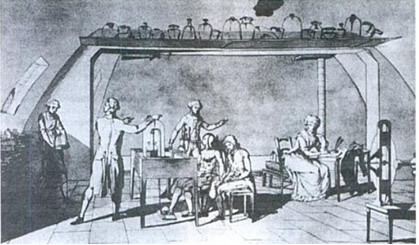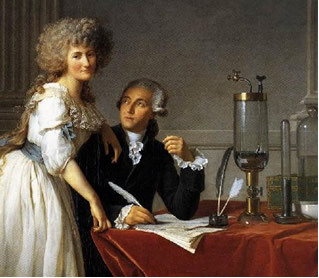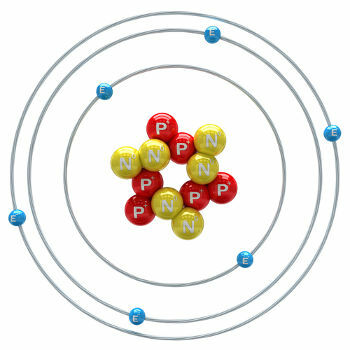Antoine Laurent of Lavoisier he was born in Paris on August 26, 1743. He was the son of a wealthy lawyer and was soon orphaned by his mother. As his family had good financial conditions, he was very well educated and early, at the age of 22 years old. old, won a gold medal from the Academy of Sciences for having designed a lighting project for the streets of Paris.
At just 25 years old he was elected a member of the prestigious Royal Academy of Sciences of France. However, at that age, he also made a decision that, as will be explained later, cost him his life; which was to have joined Ferme Générale – a private company that had the right to levy taxes on behalf of the French crown.
The earnings he earned by buying shares in that institution funded much of his research. Lavoisier was a careful scientist who made detailed observations and planned his experiments and is therefore considered one of the founders of Modern Chemistry.

At the age of 29, Lavoisier married Marie Anne Pierrette Paulze (1758-1836), the daughter of one of the major partners of Ferme Générale, who at the time was only 13 years old. But this marriage was very advantageous for Lavoisier, as Marie Anne also became his partner and scientific research assistant. She translated the most recent articles in Chemistry from English into French, assembled the apparatus of several experiments and often noted the results, in addition to probably having contributed in discussions about theoretical chemistry. In this way, it was a marriage he performed for both of them.

In 1789, Lavoisier launched the Elementary Chemistry Treaty, in which he presented a modern nomenclature for chemical elements, since until then the obscure language of alchemy was used. Other discoveries by Lavoisier were the relationship of the breathing process with combustion, the suggestion of the term “oxygen” for the gas that was isolated in the epoch by Priestley and, finally, the well-known law of conservation of matter or law of conservation of masses, known today by the following utterance:

However, at the time, Lavoisier did not enunciate this law in these words, but in the following way:

Lavoisier had a tragic end. In the same year of 1789, the French Revolution also began and the members of Ferme Générale were made enemies of the people, were accused of embezzlement, which is a crime committed by public officials who appropriate possessions or public money or private for their own or others' benefit and use the facilities of the office to obtain these goods or help someone else to obtain them by means illicit activities. And they were also accused of not being accountable for their activities.
Lavoisier, for being part of this institution, was not spared, on the contrary, on May 8, 1794, at the age of 51, he was killed on a guillotine. His wife was arrested, but when she was released, she published the work Chemistry Memories with her husband's name and based on notes of work he performed while alive.
The phrase that the famous French mathematician Joseph-Louis Lagrange said when he learned of his death sums up this event and its consequences well:
"Just a minute to cut that head off, and maybe a hundred years won't give us another one like it."
By Jennifer Fogaça
Graduated in Chemistry


